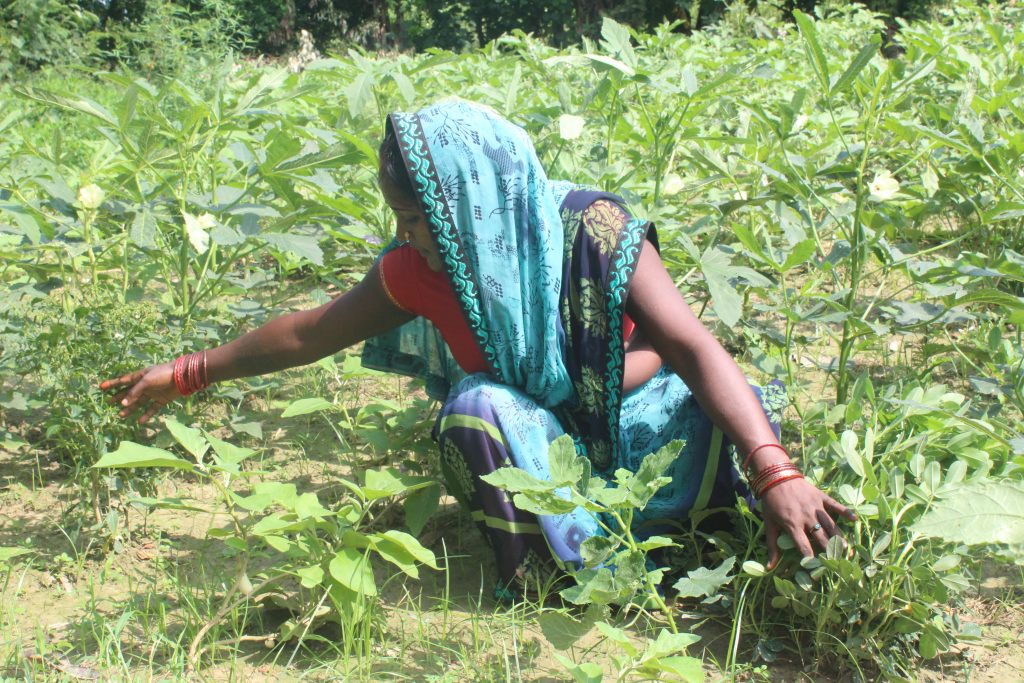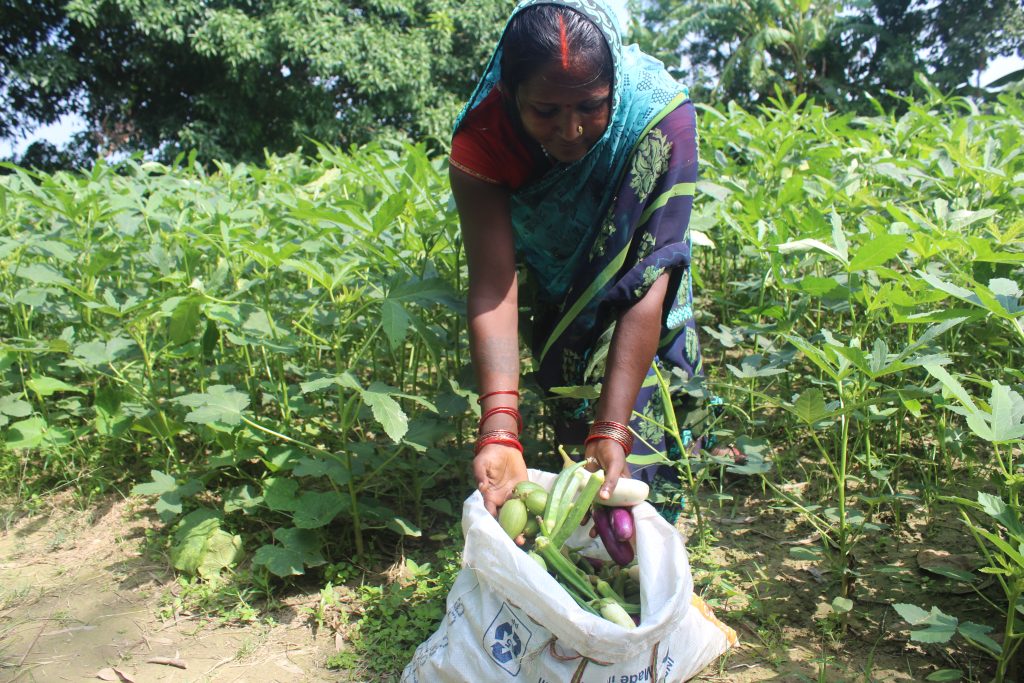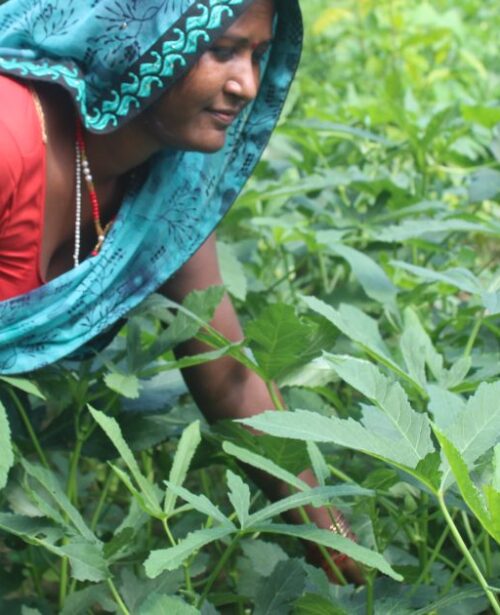Nimkala Chauhan is living in Kapilvastu Municipality Ward No. 12, Vithuva. She is from marginalized community in terms of economic condition. She has 2 sons, 1 daughter, 2 mother/father-in-law, her husband and herself altogether 7 people are living in her family. In order to fulfill their basic needs, she had taken 5 kattha (0.169 hectare) fields on lease from the neighbor landlord. Her husband used to work as a daily based labor at their village and sometimes he went to the local market pursuing for the work. Before program implementation, it was very difficult for Nimkala to teach her children and take care of them for their daily life. Though the children went to government school in the village, they only went to school occasionally.
A program named Empowering Women for Social Well-being and Sustainable Agriculture Project is being implemented with the financial support by KZE/MISEREOR, Germany and Caritas Nepal at her village i.e. Kapilvastu Municipality-12, Vithuva village. At the initial phase of the project implementation the massive discussion was done with the different stakeholders of each village of her ward. A few months were spent for discussing with the marginalized Madheshi and Dalit women about different socio-economic issues. After attending several discussions, the women members of her village came to the conclusion and formed a women group and started their regular meeting. At the beginning of the meeting elder women only started to join group meetings. Nimkala ‘s mother-in-law did not allow her to join in the group, believing that daughters-in-law should not go out of the house in the Madhesi community. Her mother-in-law only became the member of the group representing her family. After discussing time and again about inclusion of youth women in the group, Nimakala’s mother-in-law started to know things gradually and she allowed Nimakala to be a part of the group realizing that her daughter-in-law would know better than her.
The coordinator of the program and the animator of the same ward repeatedly visited the group of the Nimakala’s and shared about income generating activities. All the women members of the group encouraged to do something for their regular income source. When the group was discussing about several options of the IGA, Nimkala Chauhan also shared that she would grow chemical free vegetables for income, but she also shared that she did not have any fund to start this business. As she has a great desire to do something for regular cash flow, she requested to get some support from Peace Nepal, Kapilvastu (Implementing Partner Organization of Caritas Nepal).

After some time Nimkala Chauhan was provided financial support by NPR. 6,000 from the program as a small entrepreneurship establishment support. After the support, it was discussed at her home as well, so she started pesticide-free vegetable farming with the help of her husband and father-in-law. The social mobilizer of the program helped her to make and manage compost manure, botanical pesticide and pest and diseases control methods using locally available resources. Gradually she started cultivating mixed vegetables using local and improved seeds.. When the chemical-free vegetable farming started to provide regular income, her husband also started helping her to take care of the farm and marketing work. She said that when they brought vegetables from the market, her family used to eat vegetables with a lot of chemical fertilizers and pesticides, and few times the children had diarrhea. However, now there is no any problem on these chemical pesticide-free vegetables grown in their own fields.
“I am happy in terms of regular income. The program has helped me financially and the cooperation between her family members has increased. As a result I am now able to send my kids to the school on regular basis.”

From this farming, she has been earning minimum NPR 2000 to 25000 per month by selling vegetables. Additionally, she said that the money for buying chemical fertilizers, pesticides and hybrid vegetable seeds has been saved and the health of the family has also improved. The agro ecology concept of farming not only increasing her income, it also increased the fertility of her farming land. So, she has planned to grow vegetables without chemical fertilizers, pesticides and hybrid seeds in around 7 Katthas (0.237) land.
(This article was written by Dipendra Lamsal and was originally published in the Caritas Nepal website on March 24, 2023. Reprinted here with permission from Caritas Nepal.)


